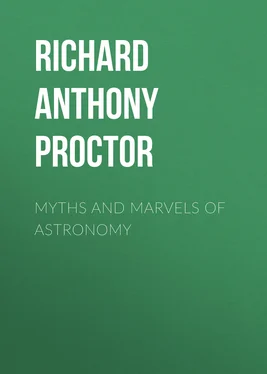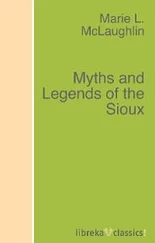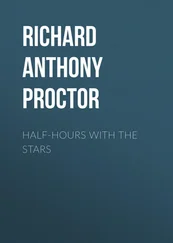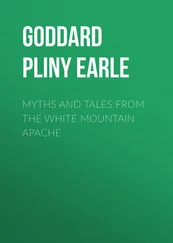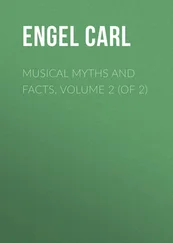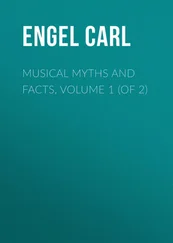Richard A. Proctor - Myths and Marvels of Astronomy
Здесь есть возможность читать онлайн «Richard A. Proctor - Myths and Marvels of Astronomy» — ознакомительный отрывок электронной книги совершенно бесплатно, а после прочтения отрывка купить полную версию. В некоторых случаях можно слушать аудио, скачать через торрент в формате fb2 и присутствует краткое содержание. Жанр: foreign_edu, Физика, на английском языке. Описание произведения, (предисловие) а так же отзывы посетителей доступны на портале библиотеки ЛибКат.
- Название:Myths and Marvels of Astronomy
- Автор:
- Жанр:
- Год:неизвестен
- ISBN:нет данных
- Рейтинг книги:5 / 5. Голосов: 1
-
Избранное:Добавить в избранное
- Отзывы:
-
Ваша оценка:
- 100
- 1
- 2
- 3
- 4
- 5
Myths and Marvels of Astronomy: краткое содержание, описание и аннотация
Предлагаем к чтению аннотацию, описание, краткое содержание или предисловие (зависит от того, что написал сам автор книги «Myths and Marvels of Astronomy»). Если вы не нашли необходимую информацию о книге — напишите в комментариях, мы постараемся отыскать её.
Myths and Marvels of Astronomy — читать онлайн ознакомительный отрывок
Ниже представлен текст книги, разбитый по страницам. Система сохранения места последней прочитанной страницы, позволяет с удобством читать онлайн бесплатно книгу «Myths and Marvels of Astronomy», без необходимости каждый раз заново искать на чём Вы остановились. Поставьте закладку, и сможете в любой момент перейти на страницу, на которой закончили чтение.
Интервал:
Закладка:
7
The astrologers were exceedingly ingenious in showing that their art had given warning of the great plague and fire of London. Thus, the star which marks the Bull's northern horn—and which is described by Ptolemy as like Mars—was, they say, exactly in that part of the sign Gemini which is the ascendant of London, in 1666. Lilly, however, for whom they claim the credit of predicting the year of this calamity, laid no claim himself to that achievement; nay, specially denied that he knew when the fire was to happen. The story is rather curious. In 1651 Lilly had published his Monarchy or no Monarchy , which contained a number of curious hieroglyphics. Amongst these were two (see frontispiece) which appeared to portend plague and fire respectively. The hieroglyphic of the plague represents three dead bodies wrapped in death-clothes, and for these bodies two coffins lie ready and two graves are being dug; whence it was to be inferred that the number of deaths would exceed the supply of coffins and graves. The hieroglyphic of the fire represents several persons, gentlefolk on one side and commonfolk on the other, emptying water vessels on a furious fire into which two children are falling headlong. The occurrence of the plague in 1665 attracted no special notice to Lilly's supposed prediction of that event, though probably many talked of the coincidence as remarkable. But when in 1666 the great fire occurred, the House of Commons summoned Lilly to attend the committee appointed to enquire into the cause of the fire. 'At two of the clock on Friday, the 25th of October 1666,' he attended in the Speaker's chamber, 'to answer such questions as should then and there be asked him.' Sir Robert Brooke spoke to this effect: 'Mr. Lilly, this committee thought fit to summon you to appear before them this day, to know if you can say anything as to the cause of the late fire, or whether there might be any design therein. You are called the rather hither, because in a book of yours long since printed, you hinted some such thing by one of your hieroglyphics.' Unto which he replied: 'May it please your honours, after the beheading of the late king, considering that in the three subsequent years the Parliament acted nothing which concerned the settlement of the nation's peace, and seeing the generality of the people dissatisfied, the citizens of London discontented, and the soldiery prone to mutiny, I was desirous, according to the best knowledge God had given me, to make enquiry by the art I studied, what might, from that time, happen unto the Parliament and nation in general. At last, having satisfied myself as well as I could, and perfected my judgment therein, I thought it most convenient to signify my intentions and conceptions thereof in forms, shapes, types, hieroglyphics, etc., without any commentary, that so my judgment might be concealed from the vulgar, and made manifest only unto the wise; I herein imitating the examples of many wise philosophers who had done the like. Having found, sir, that the great city of London should be sadly afflicted with a great plague, and not long after with an exorbitant fire, I framed these two hieroglyphics, as represented in the book, which in effect have proved very true.' 'Did you foresee the year?' said one. 'I did not,' said Lilly; 'nor was desirous; of that I made no scrutiny. Now, sir, whether there was any design of burning the city, or any employed to that purpose, I must deal ingenuously with you, that since the fire I have taken much pains in the search thereof, but cannot or could not give myself the least satisfaction therein. I conclude that it was the finger of God only; but what instruments He used thereunto I am ignorant.'
8
Sir Toby Belch and Sir Andrew Aguecheek were evidently not well taught in astrology. 'Shall we set about some revels?' says the latter. 'What shall we do else?' says Toby; 'were we not born under Taurus?' 'Taurus, that's sides and heart,' says sapient Andrew. 'No, sir,' responds Toby, 'it's legs and thighs. Let me see thee caper.'
9
'This is the excellent foppery of the world, that, when we are sick in fortune (often the surfeit of our own behaviour), we make guilty of our disasters the sun, moon, and stars: as if we were villains on necessity; fools by heavenly compulsion; knaves, thieves, and treacherous by spherical predominance; drunkards, liars, and adulterers, by inforced obedience of planetary influence; and all that we are, evil, by a divine thrusting on.'—Shakespeare ( King Lear ).
10
There are few things more remarkable, or to reasoning minds more inexplicable, than the readiness with which men undertook in old times, and even now undertake, to interpret omens and assign prophetic significance to casual events. One can understand that foolish persons should believe in omens, and act upon the ideas suggested by their superstitions. The difficulty is to comprehend how these superstitions came into existence. For instance, who first conceived the idea that a particular line in the palm of the hand is the line of life; and what can possibly have suggested so absurd a notion? To whom did the thought first present itself that the pips on playing-cards are significant of future events; and why did he think so? How did the 'grounds' of a teacup come to acquire that deep significance which they now possess for Mrs. Gamp and Betsy Prig? If the believers in these absurdities be asked why they believe, they answer readily enough either that they themselves or their friends have known remarkable fulfilments of the ominous indications of cards or tea-dregs, which must of necessity be the case where millions of forecasts are daily made by these instructive methods. But the persons who first invented those means of divination can have had no such reasons. They must have possessed imaginations of singular liveliness and not wanting in ingenuity. It is a pity that we know so little of them.
11
Wellington lived too long for the astrologers, his death within the year having unfortunately been predicted by them many times during the last fifteen years of his life. Some astrologers were more cautious, however. I have before me his horoscope, carefully calculated, secundum artem , by Raphaël in 1828, with results 'sufficiently evincing the surprising verity and singular accuracy of astrological calculations, when founded on the correct time of birth, and mathematically calculated. I have chosen,' he proceeds, 'the nativity of this illustrious native, in preference to others, as the subject is now living, and, consequently, all possibility of making up any fictitious horoscope is at once set aside; thus affording me a most powerful shield against the insidious representations of the envious and ignorant traducer of my sublime science.' By some strange oversight, however, Raphaël omits to mention anything respecting the future fortunes of Wellington, showing only how wonderfully Wellington's past career had corresponded with his horoscope.
12
'I have still observed,' says an old author, 'that your right Martialist doth seldom exceed in height, or be at the most above a yard or a yard and a half in height' (which is surely stint measure). 'It hath been always thus,' said that right Martialist Sir Geoffrey Hudson to Julian Peveril; 'and in the history of all ages, the clean tight dapper little fellow hath proved an overmatch for his burly antagonist. I need only instance, out of Holy Writ, the celebrated downfall of Goliath and of another lubbard, who had more fingers in his hand, and more inches to his stature, than ought to belong to an honest man, and who was slain by a nephew of good King David; and of many others whom I do not remember; nevertheless, they were all Philistines of gigantic stature. In the classics, also, you have Tydeus, and other tight compact heroes, whose diminutive bodies were the abode of large minds.'
Читать дальшеИнтервал:
Закладка:
Похожие книги на «Myths and Marvels of Astronomy»
Представляем Вашему вниманию похожие книги на «Myths and Marvels of Astronomy» списком для выбора. Мы отобрали схожую по названию и смыслу литературу в надежде предоставить читателям больше вариантов отыскать новые, интересные, ещё непрочитанные произведения.
Обсуждение, отзывы о книге «Myths and Marvels of Astronomy» и просто собственные мнения читателей. Оставьте ваши комментарии, напишите, что Вы думаете о произведении, его смысле или главных героях. Укажите что конкретно понравилось, а что нет, и почему Вы так считаете.
